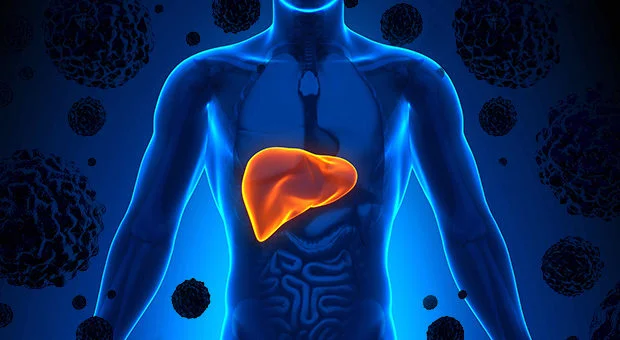The liver is the largest internal organ in the body, so it’s needless to say we ought to take good care of it. The liver has many responsibilities and functions in the body.
- Metabolism- The liver plays a part in the metabolic process of breaking down proteins and fats for storage.
- Storage- The point of this storage is to eventually convert it into the energy we need to get through our day-to-day tasks.
- Detoxification- Another large role the liver plays in the body is detoxification.
Everyone today is exposed to influences that create toxins beyond what the body can naturally handle, such as chemicals and preservatives in foods, synthetic drugs, and emotional and mental stress. From drugs and alcohol to unknown foreign substances, the liver helps filter and detoxify the materials not meant to be in our bodies. Ensuring toxins are safely removed from your blood is one of the liver’s most critical jobs. Follow these simple yet effective steps to keep a healthy liver.
1. Make water your best friend
Flush it out! Water helps maintain the fluid content of the blood. When you become dehydrated, the blood becomes thicker – your liver is responsible for filtering blood and the thickness can impact its ability to detoxify. So keeping the system hydrated is the first key to a healthy liver.
2. Lemon water to start your day
Drinking warm lemon water first thing in the morning kindles and protects agni and helps to clear the digestive tract of ama (toxins) that may have accumulated overnight. Further, lemon water is a robust source of anti-oxidants, is considered a liver stimulant, and helps to encourage liver detox while supporting bile output. Flushing your liver is like giving your body a good pre-wash so your blood stays at optimal pH level.3.
3. Eating healthy carbohydrates, fats, and proteins.
The liver is so directly involved in the digestive process and because one of its primary jobs is to filter and eliminate any toxins that we ingest, our diets inevitably have a profound effect on the health of the liver. Because pitta is so closely tied to the liver, a pitta-pacifying diet is generally going to support liver health and cleansing—particularly during the hotter months of the year.
4. Regularise your sleep cycle
The human body has an amazing biological clock and various functions occur in our body when we are sleeping. The most important of it is, liver detoxification which happens during our sleep hours especially between 11pm to 3am.
5. Yoga & Pranayama as a routine
Regular exercising helps your body burn triglycerides for fuel, which can help reduce liver fat. A practice to cool and quiet the mind can be instrumental in promoting health throughout the mind-body organism, and can be especially supportive of an emotional hot-seat like the liver. Even a ten to fifteen minute daily practice can be transformative.
6. Self-massage with oil daily
The practice of abhyanga (self-massage with oil) is deeply detoxifying to both superficial and deep tissues. It settles the nervous system, calms and nourishes the skin, promotes healthy circulation, helps to lubricate and rejuvenate all of the tissue, and supports cleansing and detoxification throughout the system, thereby supporting the liver.
7. Maintain a healthy weight
Maintaining a healthy weight can take you a long way in keeping the liver healthy and free from fat deposits. Alcohol is not the only thing that can cause fatty liver disease – obesity (or even just being overweight) puts you at risk of developing non-alcoholic fatty liver disease.
8. Periodic detoxification
Detoxification does wonders for your system, by offloading the stress of the liver and thereby enhancing its functionality. Ayurveda & Naturopathy, both emphasize the preventive aspect as much as it has detailed the curative aspect of diseases. Periodic seasonal detoxification through panchakarma therapies plays a vital role in the prevention of and also in enhancing the vitality of the organs.

